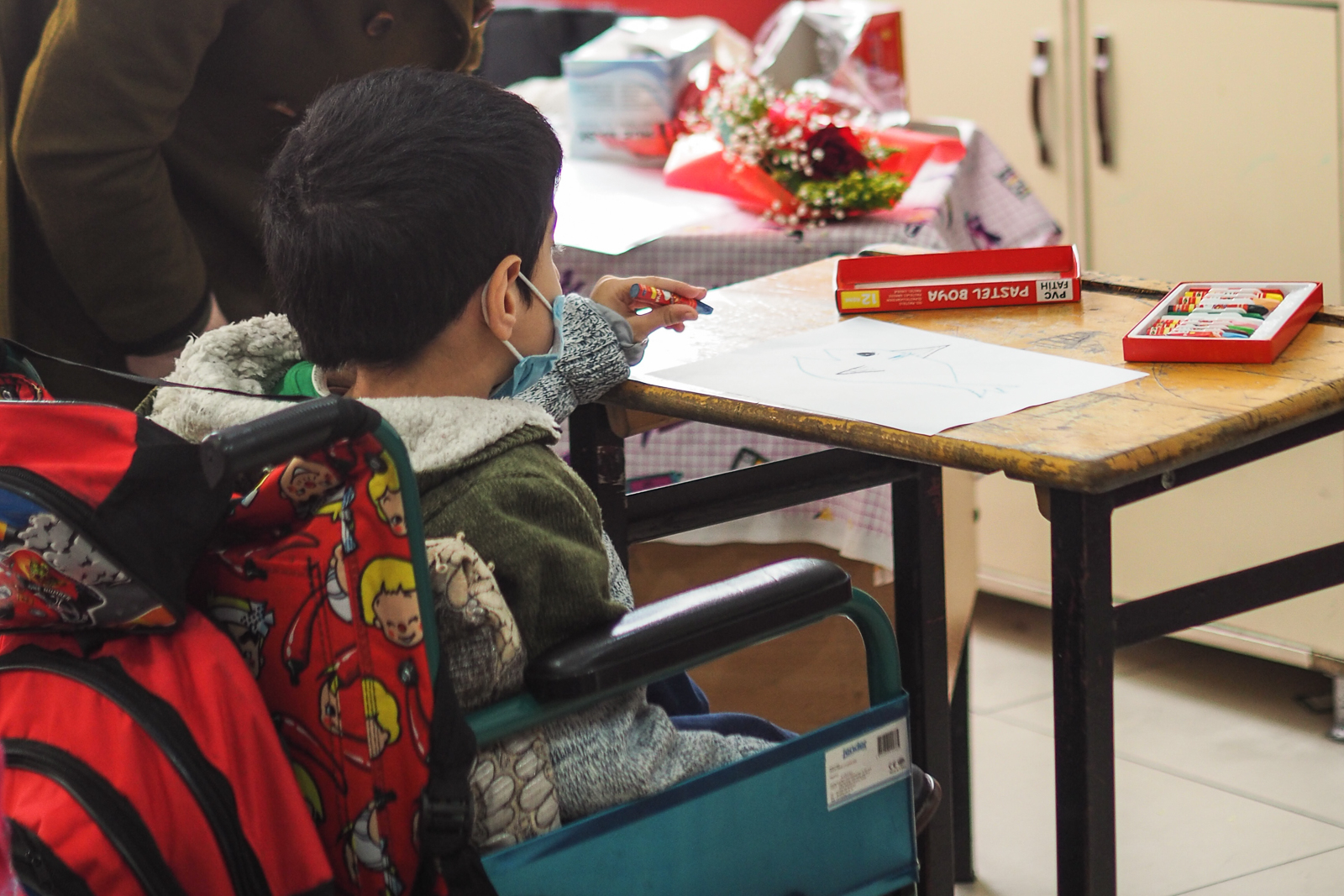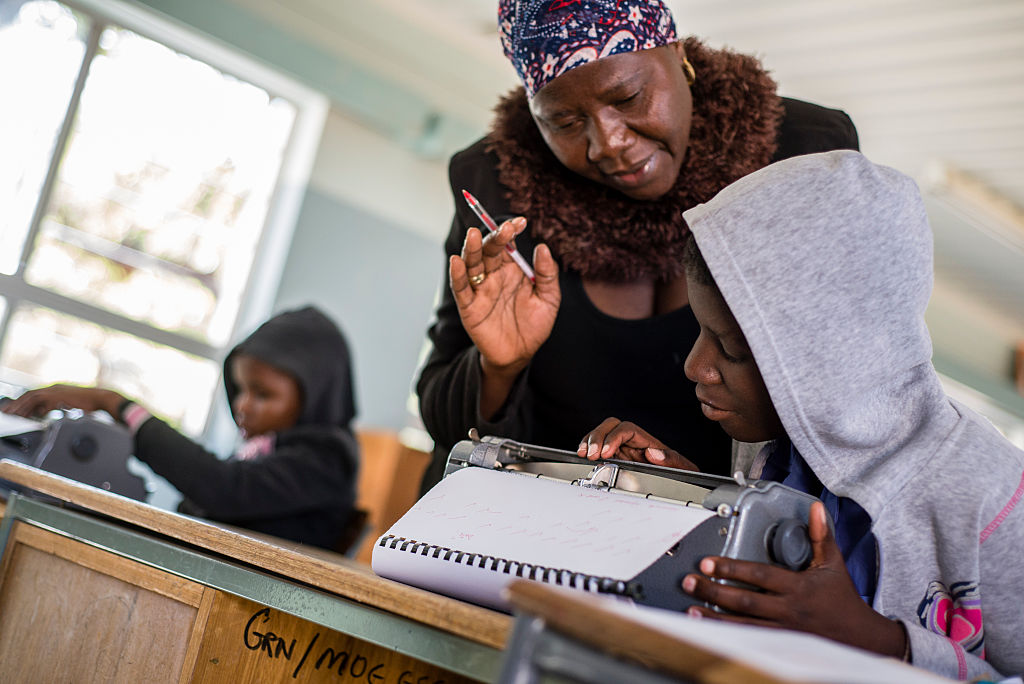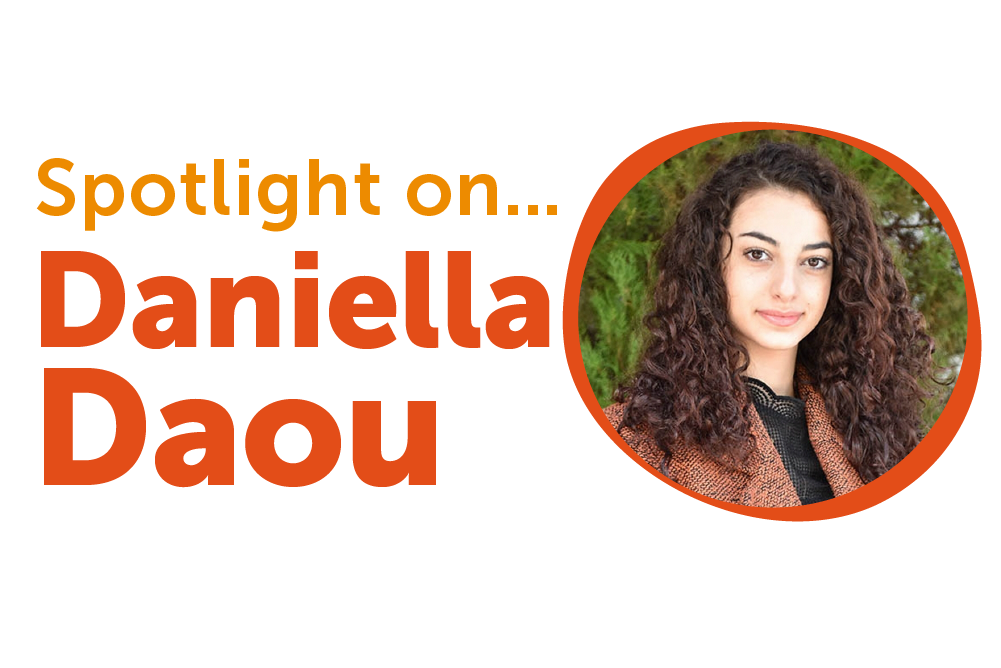
“I could not change what had been done but I knew I could write my destiny. I accepted the way I was and focused on blessings”
Children with disabilities
Sajiha Batool is one of our Global Youth Ambassadors in Pakistan. To mark International Day of Persons with Disabilities on December 3, she interviewed a student from her university, 22-year-old-old Awais Ahmad.
Awais Ahmad was born in Sargodha, a city in Punjab, Pakistan. He was a healthy child, growing normally with every passing day.
Around his first birthday, he got a fever and he was prescribed some medication – but what should have been a simple injection led to almost immediate nerve damage in his right leg.
His family immediately sought medical care and looked into various treatment options for him. After proper care and treatment, he started to walk a little but it was not an easy walk for a child.
Awais was enrolled in a regular school but he tells me that first grade through to seventh grade was a very difficult time for him. Kids from school made fun of him and teased him in all the ways they could think of.
All this was too much for him to take. He says that this was a time in his life when he felt depressed and sad.
In seventh grade, he underwent three surgeries – one after the other – and he started to walk better, although he still needed support. After the surgeries, doctors advised him to rest and not to walk unaided.
He was bedridden for many months with plaster all over his leg which he grew very tired of. Awais was impatient to be able to walk again and so started to walk with little or no support.
He says that doing this affected his recovery and meant that he never recovered to his full potential but that these surgeries still made a hugely positive impact on his mobility.
Awais told me that people can think what they want but he does not consider himself a person with any limitations.
When Awais grew older and wiser, he started to focus on things that he had rather than on what he did not have. That made all the difference.
He became more mentally stronger and he never let himself be overwhelmed by the difference between him and the people around him. It gave him courage, which is why he can stand up for himself and for other people like him, and speak for them without hesitation.
He told me: “I could not change what had been done but I knew I could write my destiny. I accepted the way I was, and I focused on blessings that had been bestowed upon me.
“It gave me courage and I became good at doing what I wanted. When I look around, I see many people who do not have what I have. Why should I not be thankful?”
He is enrolled in a four-year degree programme at the department of communication studies at the University of Sargodha. He will complete his degree next year. He is also the head of the dramatic society of his department.
There must be a strength unique to you, a talent that is there, you just need to find it and work on it. Awais Ahmad
He is passionate about photography and can often be found with a DSLR camera taking photos around the university and elsewhere. He participates in various co-curricular activities and organises different events, and also likes to spend his time volunteering for different causes.
Last year he was a member of a team of six people that visited the SOS Children’s Village Sargodha on two weekends and did different activities with children.
The only way this disability – which he says again and again he does NOT pity himself for and that he does NOT consider himself disabled – affected his life was his career choice.
He wanted to join the Pakistan Army but he accepted that he had to go for something else. He changed his aim and he is happy now.
He is a source of strength for other people. He leads a carefree life and it shows on his face. He says many students with different disabilities in his college days looked up to him.
Now in university, people talk to him about how he manages to be so happy, content, active and strong. He himself reaches out to people and helps them be stronger and focus their energy on the bright side.
He says “I believe in ‘pass it on’’, so when he reaches out to help people, he is passing it on.

I was interested to know what his source of strength was. His biggest strength lies in his faith and the belief that gives him that he will never be left alone.
Also, he says his family is very supportive of him. If he were to name one person who stood by him always, he would say it was his big brother Khurram Shahzad, who encouraged him constantly with fun and serious discussions and with acts of support.
In future, he views himself as an entrepreneur who starts his own business from grassroots level, without any financial help from his family. He wants to generate resources for himself and he is willing to take risks.
I interviewed him and I can summarise our conversation in these words which he really lives by…
“Have faith, stop overthinking about what you do not have and focus your energy on finding what talent you have been given, because when you are deprived of something, you are blessed with something else.
“There must be a strength unique to you, a talent that is there, you just need to find it and work on it.
“Do not worry about the hand that you have been dealt. You cannot change the cards but you are in control of how you play that hand. You can be a good player.”
More news

Technology has the power to expand education for children with disabilities
